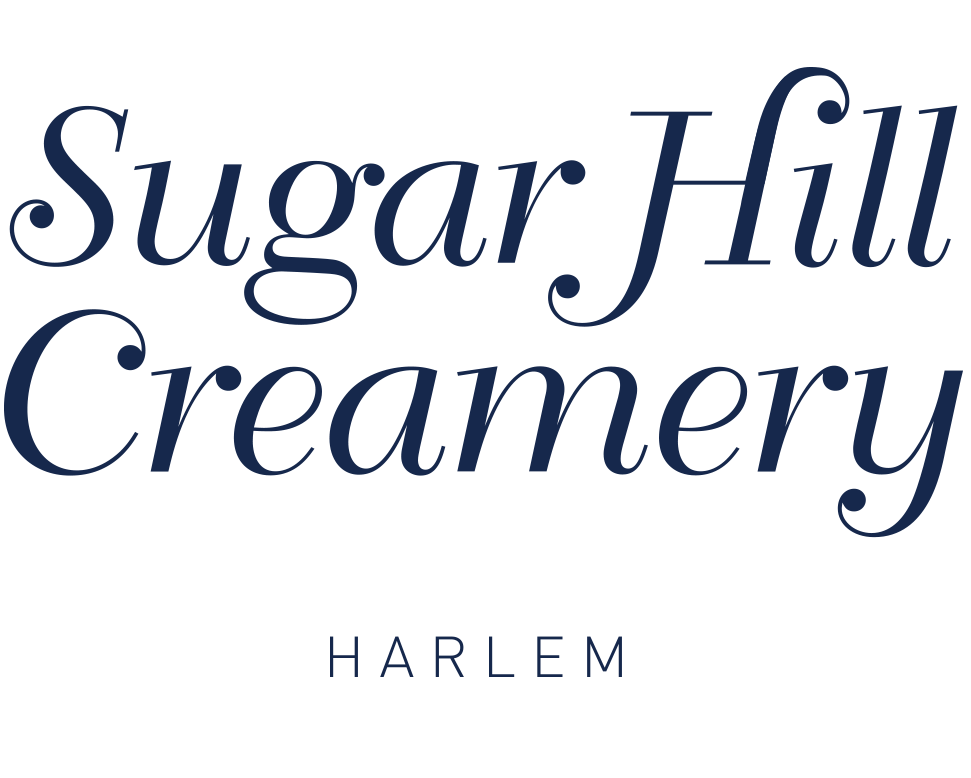Meet Melvin
Melvin Hammonds moved to Harlem 25 years ago, “I lived in Queens and my daughters were going to school on the East side and going back and forth started getting crazy. So my wife walked through here 25 years ago and found an abandoned building that she wanted to move into… Like ‘These are great windows. I got this, I got this.’ 25 years later, we're still here and happy, raised three girls, gone to college and graduated.” He and his wife got their apartment through a third party transfer program, “When we came in there was no lights in the building, no heat... Graffiti was from the first floor to the 8th floor… Some apartments still had the swinging poles from the nightlife in that building. We went through a third party transfer program and they rehabbed the building. So we came up and got some new tenants. We graduated from the slum building to a pretty nice community.”
Through the years, he has seen various eras of Harlem when visiting family, “My cousins lived on 134th and 8th so my sister grew up with them. My brother had an apartment on 110th and Central Park…” Melvin explains, “I've been [through several] decades of Harlem, from the 70s, 80s, 90s and 2000s. Still, the best thing about Harlem is the people… Harlem, with all its faults, was still one of the greatest places in the world to grow up...” Living in Harlem has provided them with unique experiences and memories. He has met a variety of people, whether it be residents in the building or casually meeting new people in the park. He respects the history and culture of Harlem and being able to learn about the community through lifelong residents, “When I first came there was still a woman, [Miss Morgan], here that lived in [my building], she was a jazz pianist. She was 87 years old. This was 2003. The things she would tell us about Harlem was great. When she passed, she gave us her piano.”
“I’ve been [through several] decades of Harlem, from the 70s, 80s, 90s and 2000s. Still, the best thing about Harlem is the people… Harlem, with all its faults, was still one of the greatest places in the world to grow up...”
He is originally from Queensbridge and explains he has felt a different kind of camaraderie in Harlem. He says, “In Harlem, you could just walk the street and you can be talking about a basketball game and all of a sudden you got four people into the conversation.” One of the many things he loves about the community is how there is always something to do, “You could go to the park, you can play chess half the day, play ball… And it's all community. It's not done by Parks and Recreation or anything, it's just the guys getting together… We used to have a Spades night. Every Thursday we played Spades. People brought food over and we went to different apartments and we’d play... That’s Harlem.”
Melvin loves Harlem and has no plans to leave. He explains, “From my experience in Harlem, you know, I came in 2000, we were able to send our kids to… school… and they were able to get an education, they could play lacrosse. My experience… I only have a high school diploma. My wife has a doctorate in education, so education was important to her, where the common sense aspect was more important to me… [To] give my kids ‘street knowledge’ to make sure that you can walk in any… area and you can feel comfortable, you know… So that was important in Harlem, for being... high school educated… [and] to raise [my] kids to go to college... My 3 girls have Bachelor’s degrees. What else am I supposed to do with this life?” He reflects on his journey saying, “I’m 66 years old. I've never been arrested. I don't have a criminal record and I grew up in the worst project in New York. My mother was a nurse who raised… raised seven of us. Some of us, the culture got us… but four of us made it. I got nephews and nieces that are cops, lawyers… You know, my wife says, ‘You're emotional about New York.’ I am because I love New York…”
Now retired, Melvin is learning new hobbies and enjoying this era in his life with his wife of 40 years as empty nesters. He goes to the park, meets with friends, goes to the Schomburg for seminars, and continues to learn about the history of Harlem. As the community continues to change and develop, he hopes for the preservation of Harlem history and the continuation of Harlem traditions that form the community he loves so much. He says, “I look forward to combining the new Harlem with the old Harlem and making a Harlem that we can all be proud of and be happy of, the history, past and present, and future. That's the Harlem that I'm looking forward to… [When people] could come and tell you about Langston Hughes, or about Fly Williams, [who] was a basketball player here in Harlem. When they can do that and they understand the history of Harlem, I would be very happy…”



